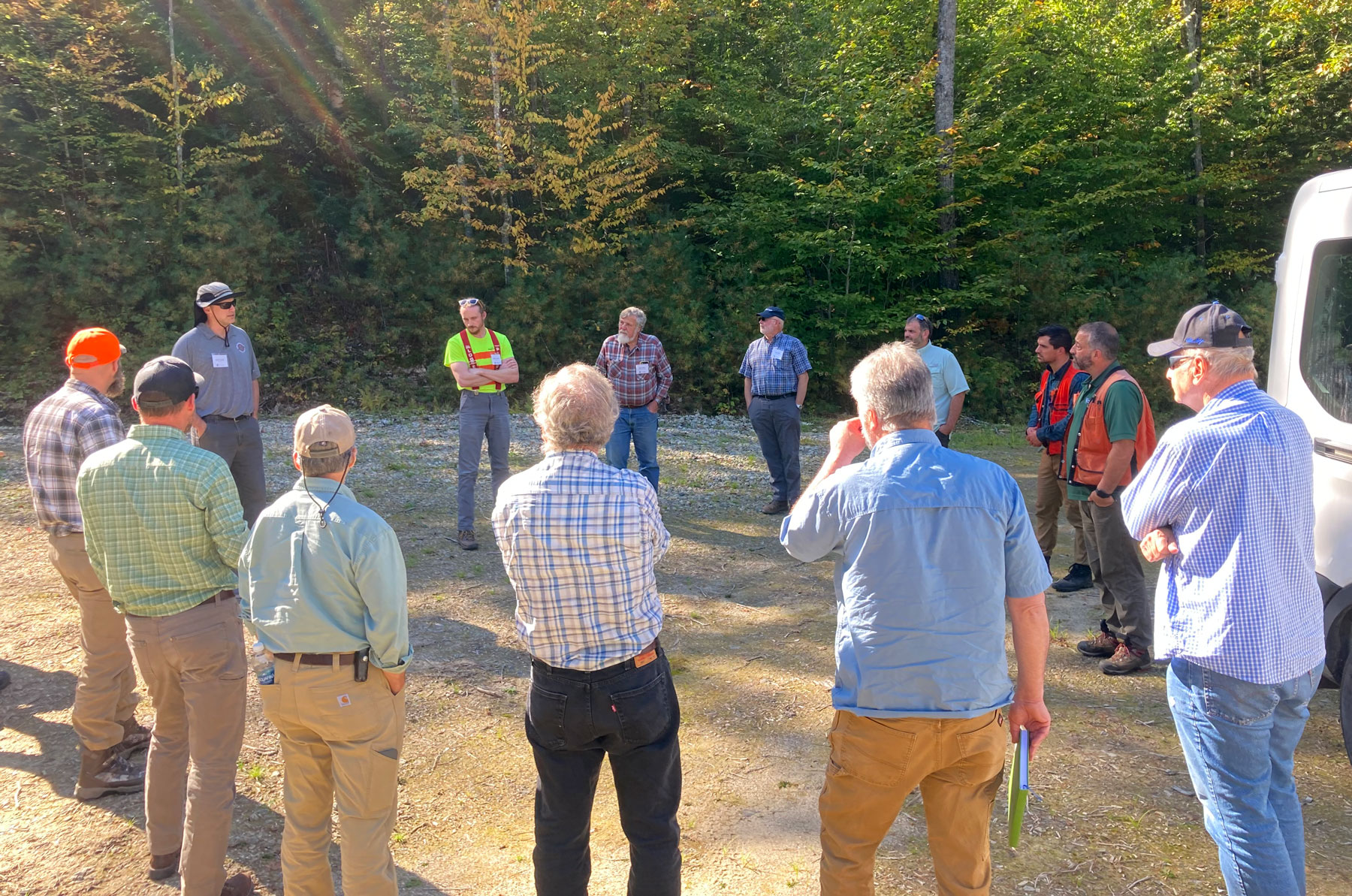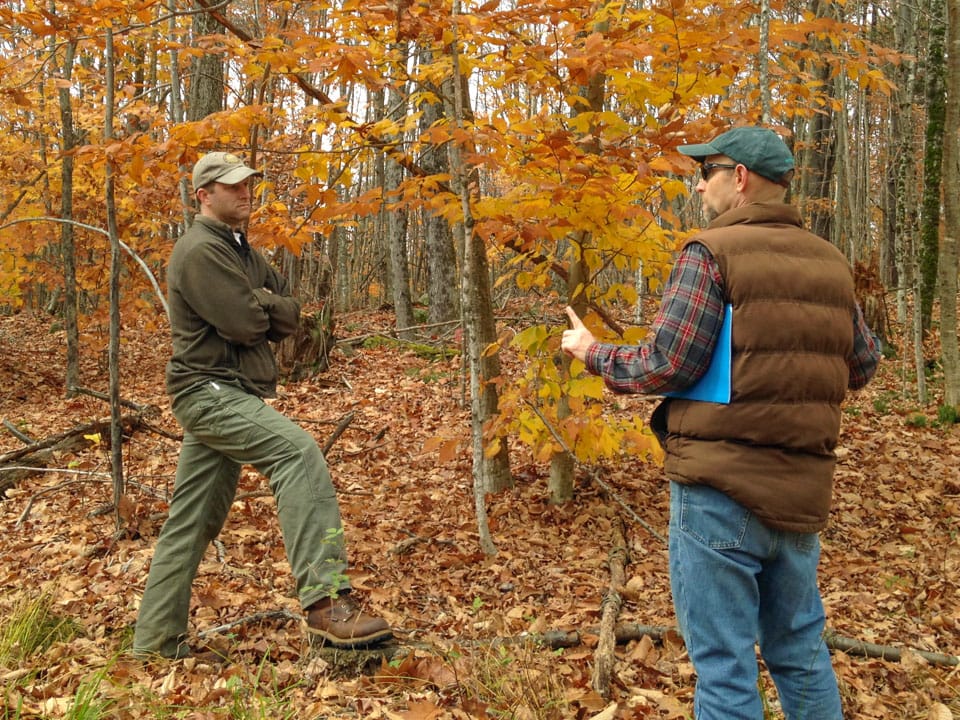
Eric Walsh
Climate Smart Land Network, Program Director
The Climate Smart Land Network (CSLN), a program under the Manomet umbrella, hosted its 2023 annual meeting to support members — commercial timber landowners — in navigating climate-smart forestry practices. The CSLN annual meeting allows forestry professionals to explore science-based approaches for transitioning to climate-smart forestry. In the first week of October, members gathered for two days in Concord, New Hampshire, to learn about policies and management mechanisms that make this approach both economically and environmentally feasible. There is increasing pressure to make the forestry sector climate change sustainable, and public policy efforts are attempting to help the sector and encourage the adoption of climate-smart forestry through market-driven incentives.
The event kicked off with a keynote workshop featuring Jen Shakun and Alec Giffen of the New England Forestry Foundation (NEFF). Along with Tom Walker, a natural resource economist, they led a discussion on implementing NEFF’s USDA-funded climate-smart commodities project. The USDA has funded projects around the country that support the production of climate-smart commodities, such as harvested wood products, that can mitigate climate change.
The annual meeting took a holistic approach in addressing the scalable way each segment of the industry (from corporations to the products themselves) can play a role in making climate-smart commodities possible. For example, leveraging harvested wood products as a “climate change solution” begins with forest ecosystem management. To illustrate this, a half-day field trip connected attendees with forest managers to learn about improving production and resiliency despite a changing climate.
The field trip complemented Purdue’s Dr. Bob Wagner’s review of intensive forestry and University of Vermont’s Dr. Bill Keeton’s evaluation framework to determine whether harvested wood products are better derived from forests managed for climate change mitigation and resiliency. Ecotrusts’ David Diaz provided additional insight into approaches to verify that harvested wood that originates from forests managed to help mitigate the effects of climate change are more sustainable. Harvested wood products are an essential reserve that keeps carbon out of the atmosphere. Knowing a product’s “cradle-to-grave” carbon quantity is also imperative if the forestry sector is to become part of a global climate change solution. Dr. Thomas Buchholz of Spatial Informatics Group then discussed with the group the mechanisms that lead to robust and accurate product carbon accounting.
Corporate carbon accounting – the full carbon implications of a business’s complete activities – is increasingly necessary for companies to maintain a competitive advantage. Jed Davis of Agri·Mark/Cabot Creamery presented some science-based targets as well as current efforts of agriculturally-based corporations to lower their carbon footprint in order to meet global emissions reduction targets. But managing emissions reductions is only possible with reliable and verifiable accounting. The U.S. forestry sector relies on government-based methods (Entity Guidelines) that produce trusted and verifiable accounting. Dr. Chris Woodall (USFS), the co-coordinator of the forestry sector of those USDA Entity Guidelines on carbon accounting, presented the newly updated methods that are helping the forestry sector in managing its carbon footprint. To give attendees an understanding of corporate carbon accounting in action, CSLN members Jeff Curless from Rayonier and Andrew Willett from J.D. Irving discussed how they have developed and applied their company’s carbon accounting reports.
The key takeaway from this meeting is good news for both the industry and people who care about the environment: emerging forest product markets are attempting to incentivize commercial timber landowners to help them transition to a climate-smart forestry approach.





 Back to all
Back to all
